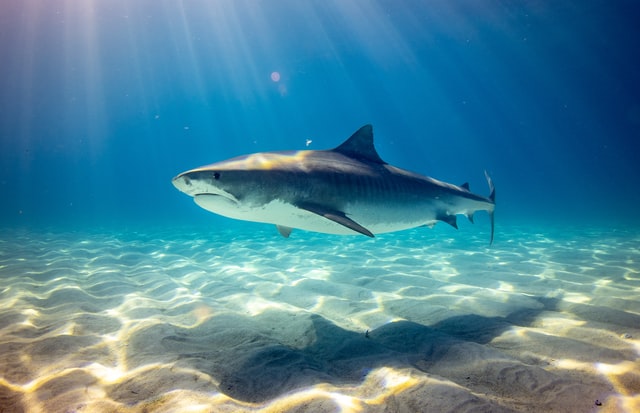Conservationists warn, around half a million sharks could be slaughtered for shark squalene, a natural oil, to immune everyone in the world with two doses of a Covid-19 vaccine.
The race for coronavirus vaccine may see the slaughter of around half a million sharks, causing irreversible damage to our ocean’s ecosystems. Conservationists in the United States have warned that the hasty hunt for a COVID-19 vaccine could mean a death sentence for many sharks across the globe. According to wildlife experts, the mass killing of sharks could take place to harvest squalene, a natural oil.
A shark support group has said, “At least 500,000 sharks around the world could be killed in the process of developing a vaccine. This mass killing of sharks will be done in order to immunise the entire world with the Covid-19 vaccine.”
According to shark conservation organisation Shark Allies, sharks could be killed in mass numbers to produce a key compound called squalene that will likely be used in a future COVID-19 vaccine. Squalene is a natural organic compound sourced from shark liver oil. This compound helps in the development of the vaccines, where it acts as an ‘adjuvant’ that primarily helps in boosting the immune response of the recipient. It also strengthens the dose of medicine.
What experts have to say?
Conservation group Shark Allies predicts that 2,500 – 3,000 sharks are needed to extract one tonne of squalene. Depending on the amount of squalene that will be used experts believe that if everybody in the world receives one dose of the vaccine, around 250,000 sharks would have to be slaughtered and if the doses are doubled to boost the immunity of every person on the globe, it would likely lead to the killing of half a million sharks.
Stefanie Brendl, founder of California-based Shark Allies states, “We are in no way trying to hinder or slow down the development of a COVID-19 vaccine or any other critical treatment that is needed to protect humanity from illness, instead we should be using plant-based and synthetic alternatives for squalene, which don’t derive from sharks.”
As per the data published by World Health Organisation (WHO) and Regulatory Affairs Professionals Society (RAPS) regarding the adjuvants in the vaccine, the US non-profit organisation Shark Allies evaluated that at least five of those adjuvants are shark squalene-based.
Scientists are worried as the global pandemic has already killed almost 1 million people worldwide and relying on already depleting species for sourcing a cure for a pandemic is a major threat to the population of the aquatic animal.
What is the concern?
It is believed that killing so many sharks will do irreversible damage to our oceanic ecosystems and will hamper the aqua life in a lot many ways. Sharks are critical to ocean health and function. They are a key element in life systems that affect ocean health, food security, and livelihoods for generations to come. We need the ocean and the ocean needs sharks.
Sharks are already globally hunted for squalene, which is heavily used in the cosmetic industry. A reliance on shark oil for a global vaccine is truly insane. The ongoing overfishing of sharks is already on a very critical level, and depending on this wild animal for a global vaccine is definitely not going to help the world.
Brendl points out that the squalene industry is already taking 2.7 million sharks for cosmetics use, a number that is predicted to double by 2024 and triple by 2027. While millions of more sharks are taken for fin harvesting and as a result of overfishing in general. Many conservationists like Brendl are worried that a squalene-dependent COVID vaccine could spell further disaster for shark species that are already at critical levels.
Why is it important to maintain ocean health?
Using squalene in universally deployed COVID vaccines could be detrimental for many shark species. Harming the already harmed is not truly sane. Also, sourcing an ingredient from a wild animal is not a long-term solution.
Maintaining ocean health is an obligation on all of us as it regulates climate and reduces climate change impacts. From a conservation perspective, there is no doubt that the overexploitation of a key component of the marine environment will have dire consequences.

